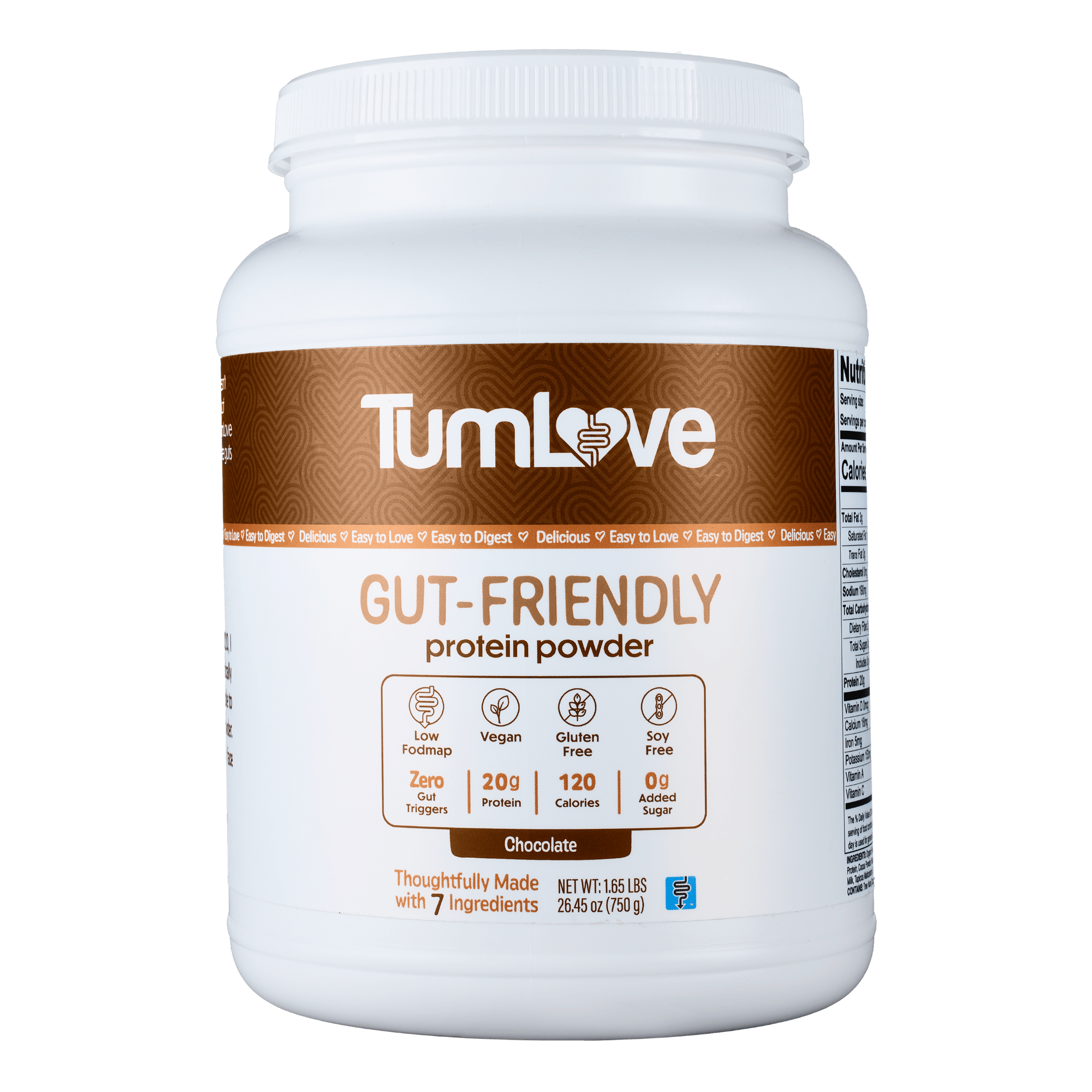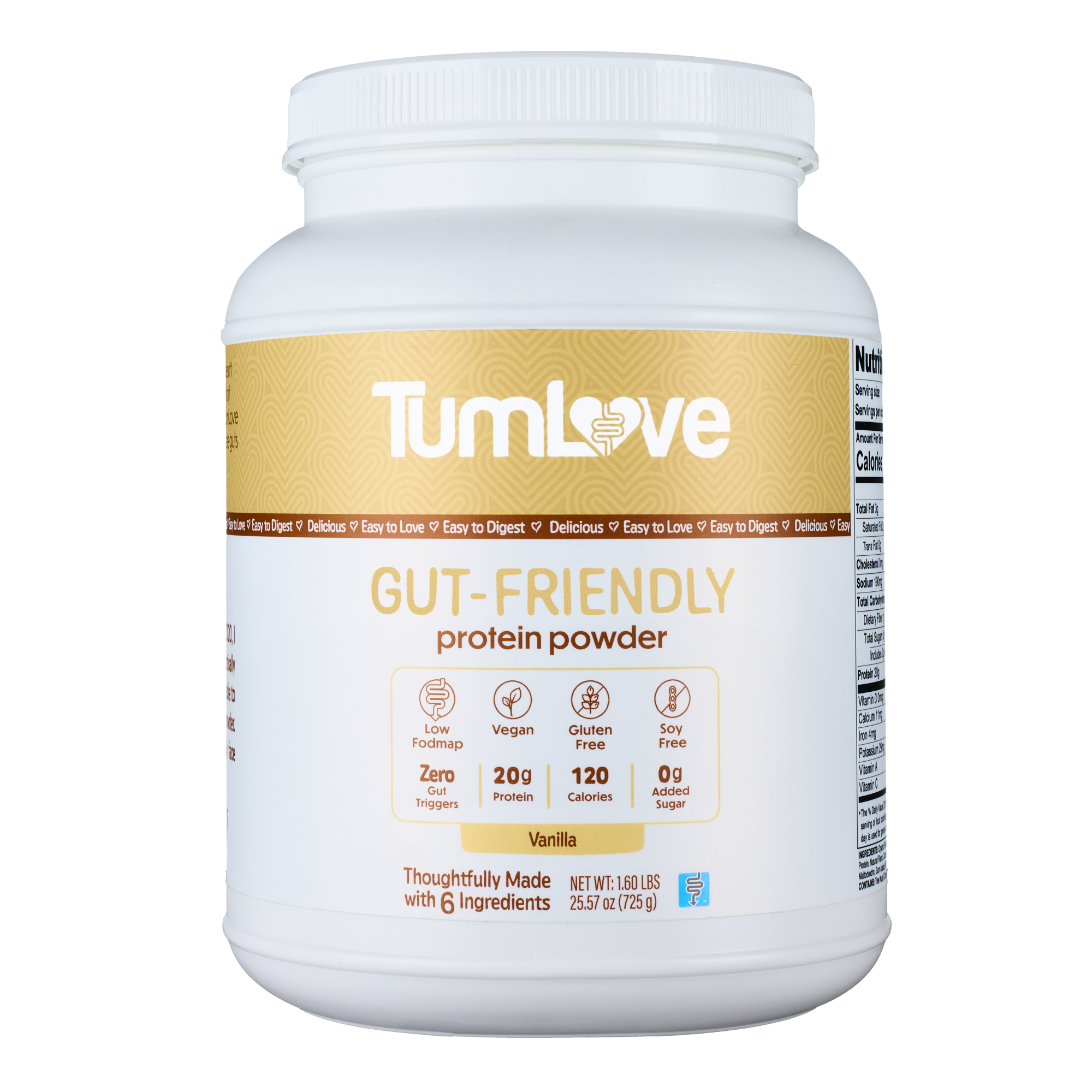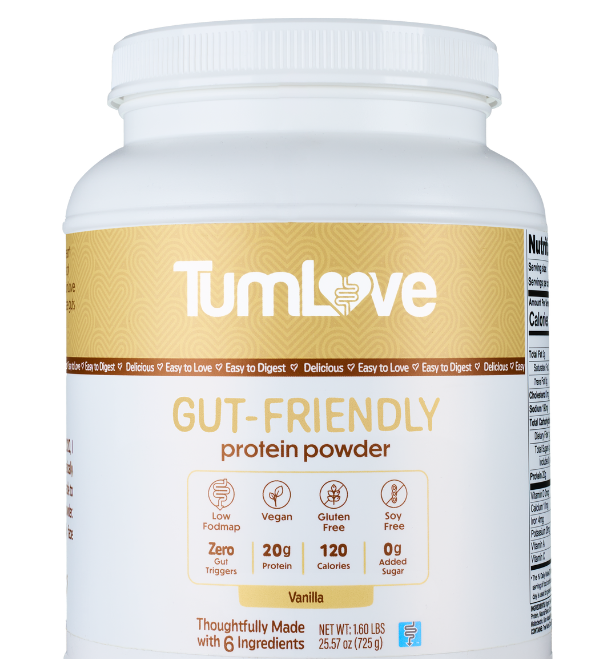At TumLove, we're more than just a provider of high-quality, gut-friendly protein powders. We're a community dedicated to empowering individuals on their wellness journeys. We believe that the foundation of good health begins in the gut, and we strive to provide resources to guide you in making the best dietary choices for your unique needs.
★★★★★
"Now I can do what I love while feeling great!"
- Lileia S.
When it comes to maintaining a healthy gut, your diet plays a pivotal role. This guide is here to illuminate the path to a happier digestive system with the best low FODMAP vegetables.
Understanding FODMAPs
FODMAP is an acronym that stands for Fermentable Oligosaccharides, Disaccharides, Monosaccharides, and Polyols. They are a group of fermentable carbohydrates that, while healthy for many, can cause digestive issues in some individuals, particularly those with irritable bowel syndrome (IBS). A low FODMAP diet, which minimizes these compounds, can help soothe your gut and enhance your overall wellbeing.
Importance of Low FODMAP Vegetables in Your Diet
Vegetables are a powerhouse of nutrients, including vitamins, minerals, and fiber. However, not all of them are gentle on your gut. Choosing low FODMAP vegetables can be a game-changer, particularly for those with sensitive tummies. It's the perfect way to enjoy a variety of nutritious veggies without triggering discomfort.
The Best Low FODMAP Vegetables
So, what are the best low FODMAP vegetables? Here's a list of veggies that are not only easy on your stomach but are also packed with nutrients:
- Carrots (FODMAP Serving Size: 500g)
- Red Bell peppers (Zero FODMAPs)
- Cucumbers (FODMAP Serving Size: 75g)
- Tomatoes (FODMAP Serving Size: 100g)
- Zucchini (FODMAP Serving Size: 65g)
*FODMAP servings sizes from Monash University*
Let's dive into the benefits of these vegetables!
Carrots
Carrots are a nutritious and gut-friendly choice. They're rich in vitamin A, which promotes good vision, and are low in FODMAPs, making them easily digestible.
Red Bell Peppers
Red bell peppers add a burst of color and crunch to your meals. They're an excellent source of vitamin C and are well-tolerated by most people. Red bell peppers contain zero FODMAPs!
Cucumbers
Cucumbers are hydrating and refreshing. They're low in FODMAPs and can be a perfect addition to your salads or as a crunchy snack.
Tomatoes
Tomatoes, either raw or cooked, can safely find a place in a low FODMAP diet. They're a good source of vitamins A, C, and K, and the antioxidant lycopene.
Zucchini
Zucchini, or courgette, is a versatile vegetable that's low in FODMAPs. It's also rich in vitamin C and potassium.
Incorporating Low FODMAP Vegetables into Your Meals
Getting these veggies into your diet can be as simple or as gourmet as you'd like. Here are some delicious and easy ways to enjoy them:
- Salads: Make a vibrant salad with carrots, bell peppers, cucumbers, and tomatoes. Toss with your favorite low FODMAP dressing.
- Sautéed or Stir-Fried: Sauté or stir-fry your veggies with some garlic-infused oil for a tasty side dish.
- Roasted: Roast your carrots, bell peppers, and zucchini for a comforting meal.
Taking Care of Your Gut with Tumlove
While including low FODMAP vegetables in your diet is a big step towards gut health, you can take your efforts a notch higher with Tumlove's Low FODMAP Gut-Friendly Protein Powder. It's vegan, has a creamy texture, and a delicious chocolate flavor. It's an easy and tasty way to support your gut health daily. Learn more about it here.

Frequently Asked Questions
Q1: Can I eat all vegetables if I'm following a low FODMAP diet?
Not all vegetables are low in FODMAPs. Some, like onions, garlic, and cabbage, are high in FODMAPs and might cause discomfort in those with sensitive digestion. It's best to follow a guide or consult with a dietitian when choosing vegetables on a low FODMAP diet.
Q2: Can a low FODMAP diet help with conditions other than IBS?
While a low FODMAP diet is often recommended for those with IBS, it can also help individuals with other functional gastrointestinal disorders. However, it's always best to consult with a healthcare provider before making any significant changes to your diet.
Q3: Are there any risks to a low FODMAP diet?
A low FODMAP diet is generally considered safe for most people. However, because it involves eliminating certain foods, it's crucial to ensure you're still getting all the necessary nutrients. Working with a dietitian can help ensure you're following the diet correctly and safely.
Tips for Shopping for Low FODMAP Vegetables
While shopping for low FODMAP vegetables, there are a few things you should keep in mind:
- Check the labels: Always check the labels for any additives that could increase the FODMAP content of your food.
- Consider portion sizes: Even low FODMAP vegetables can trigger symptoms if eaten in large quantities. Make sure to monitor your portion sizes.
- Stay updated: The list of low FODMAP foods is continually being updated as more research is done. Stay informed about the latest findings to make the best dietary choices.
Final Thoughts
Embracing a low FODMAP diet doesn't mean you have to sacrifice variety or taste in your meals. With the right knowledge and a bit of creativity, you can enjoy a wide array of vegetables and dishes. Whether you're managing a digestive condition or just want to take better care of your gut, low FODMAP vegetables can be a great addition to your diet. Always remember, your health is a journey, and every small step counts.
Shop Now




